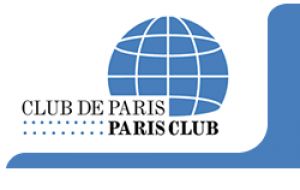MercoPress. South Atlantic News Agency
The 'morality' of the Argentina/Paris Club deal is that it's 'a shared effort'
 “We have agreed on minimum payments that will increase if new investments come to Argentina, said Kicillof
“We have agreed on minimum payments that will increase if new investments come to Argentina, said Kicillof  Despite IMF “interference” in all Club’s negotiations, Argentina “managed to agree on a fee payment plan without the IMF”
Despite IMF “interference” in all Club’s negotiations, Argentina “managed to agree on a fee payment plan without the IMF” Argentina's Economy minister Axel Kicillof gave details on Friday of the payment agreement reached with the Paris Club involving 9.7bn dollars of 2001 defaulted debt, which will open the doors to export credit agencies from the group's members and equally important signals a new attitude from the Cristina Fernandez administration.
“It is a shared effort” said Kicillof arguing the understanding reached on Thursday in Paris will fuel foreign investments and thus help increase Argentina’s dwindling international reserves.
Stressing the debt the current administration has now restructured in France is a debt “previous governments had incurred in” the minister explained the 2001 default has been hindering trade opportunities with the members of the Paris club.
“This is beneficial, it repairs the condition of irregularity that we had with some of the most important countries in the world that account for 55% of the global GDP” Kicillof insisted pointing out the Paris accord was based on Argentina’s “responsibilities” and that “it will not jeopardize growth.”
Kicillof then criticized the role played by the International Monetary Fund in the 70’s, 80’s and mostly in the 90’s (the so called “neoliberal decade) that resulted in Argentina's 2001-2002 social, political and economic collapse and historic default.
“In general, all the agreements that the Paris Club has reached have been under the supervision of the IMF. If a country had trouble paying its debt, then it turned to the IMF. That is Argentina’s own history, prior to the 2001 (crisis). Each of the governments turned running to the IMF because they could not keep up with the Club’s payments. The IMF lent them the money but also told them they had to commit with the reduction of social spending, the privatization of public companies. That is what we call 'to condition'. It is the loss of sovereignty and of economic independence,” Kicillof stated describing the Argentina-Paris Club 2014 negotiation precisely as “atypical”.
Despite the “interference” of the IMF in all the Club’s negotiations, the minister said Argentina “managed to agree on a fee payment plan without the IMF.”
“Once we start making the first round of the debt’s due date payments, the credit agencies (of the states that shape up the Paris Club) will start opening the window again and lend companies money to invest in Argentina. If a company from one of those countries needs credit to come to invest in Argentina, it will access to very favorable interest rates,” the minister explained as he detailed the conditions of the agreement.
“We have agreed on minimum payments that will increase if new investments come to Argentina. This is a society we have created. As long as it creates credit so that companies come and invest here, Argentina will then pay more. It is a sort of shared effort” Kicillof added referring to what he called the “morality” of the accord.
According to the terms of the deal payments will be made within the next five years. It could be extended to 7 years. The total amount to be cleared off is 9.7 billion dollars, capital and interest.
The deal involves an interest rate of 3%, Kicillof highlighted previous contracts involved a 7% rate and that “it has now been reduced to less than half of it.”
There will be an initial down payment of 650 million dollars next July and 500 million in May 2015. The rest will be honored in five years if Argentina received sufficient investments or seven if not. Likewise if member countries investments increase, Argentina is committed to speed repayments.
Most probably as a direct consequence of the deal, the US blue dollar or informal rate in Buenos Aires money exchange houses dropped 30 cents and traded at 11.40 Pesos. And in the official market the US dollar traded half a cent higher in banks and exchange offices at 8.095 pesos as market analysts estimate around 140 million dollars from grain exporters are being liquidated on a daily basis, thus increasing Central bank international reserves.




Top Comments
Disclaimer & comment rules-

-

-

Read all commentsAmazing that Argentina has slipped so far that it is hardly a developing economy anymore but a frontier economy.
May 31st, 2014 - 10:07 am 0But it is supposedly the IMF's fault.
Why hasn't this happened to other countries? Why can other countries implement “neoliberal” policies and prosper? But when Argentina fails it is because of someone else!
Perhaps Argentina should be looking closer to home for the reason it keeps have such frequent financial and economic crises.
When you have paranoid delusions like so many in The Dark Country, it's easy to see where the blame lies!
May 31st, 2014 - 11:09 am 0Anywhere and anybody but you.
And their first payment will be with a 600 million euro loan from France. Wow. That's economics for you Argentine style. Imagine if I borrowed money from the bank to pay my credit card bill. I still owe the money....no?
May 31st, 2014 - 11:22 am 0Commenting for this story is now closed.
If you have a Facebook account, become a fan and comment on our Facebook Page!